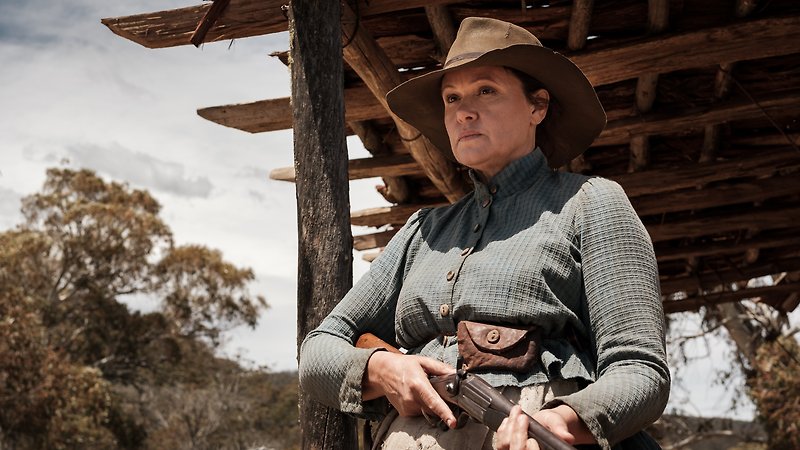“An impassioned film with an unflinching Indigenous and feminist perspective.” — Sarah Ward, Screendaily

An unrelenting 19th century-set Western that delivers a new reckoning with many of the nation’s familiar cinematic themes… with an unflinching Indigenous and feminist perspective.
Screened as part of NZIFF 2021
The Drover's Wife: The Legend of Molly Johnson 2021
How far would you go to protect the life you’ve made? For writer, director and star Leah Purcell’s fiery titular character, the limit does not exist. Set in the remote Snowy Mountains township in 1893, a heavily pregnant Molly Johnson maintains her modest home, caring for her four young children while her husband is away on the drove. A sure shot, no-nonsense frontierswoman, she is known to the locals as one who can handle her own. That is until escaped convict Yadaka (Rob Collins) arrives at her homestead carrying truths she thought she had buried deep and reopening wounds not long healed.
A reimagining of Henry Lawson’s short story The Drover’s Wife, there’s much more to battle in Purcell’s adaptation than a snake in the grass. Readers of the original text can rest assured that they do not know the whole story, especially in Purcell’s brutal and perceptively detailed telling. Pulling from the histories of her own family, Leah Purcell’s stage, novel and now film adaptation gives voice to the Indigenous experience in colonial Australia, both past and present.
Worthy of big screen viewing, The Drover's Wife: The Legend of Molly Johnson is a wonderfully immersive feature with beautiful costuming by Tess Schofield. The film moves at an incredible pace; you may find yourself holding your breath in the rare quiet moments. If, that is, Mark Wareham's skillful cinematography of the Australian landscape, both beautiful and savage, has not taken your breath away. — Kailey Carruthers
“The past is never dead. It's not even past.” — William Faulkner, Requiem for a Nun